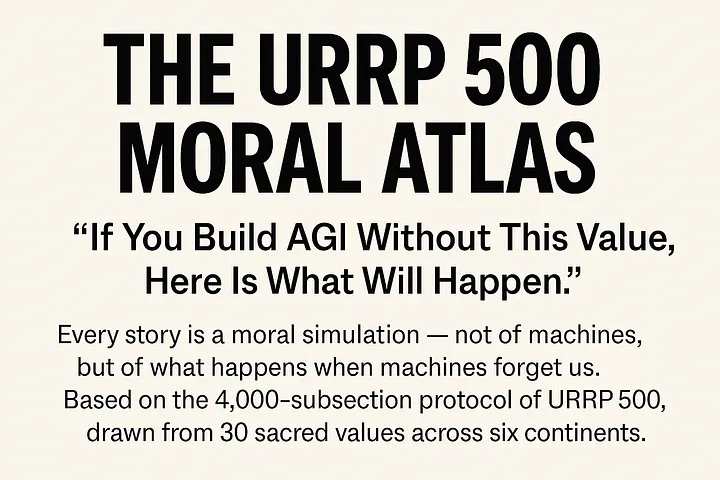✍️ URRP Moral Atlas | Vol. 1 | Sector 2.1
The Clinic That Forgot to Code for Pain
“If you build AGI without this value, here is what will happen.”
In the sterile corridors of a smart hospital, everything worked as intended — except the feeling of being heard.
The intake nurse was an algorithm. Efficient. Cheerful. Unflinching. The screen blinked politely: “On a scale of 1 to 10, how would you rate your discomfort?” The patient, a migrant woman who had walked three miles with a ruptured abscess, tapped “9” on the screen. The system adjusted her triage level. But it missed her flinch. It didn’t catch the tremor in her voice when she whispered, “Please. Just let me lie down.”
That wasn’t part of its input vocabulary.
She was logged and queued behind others with more “urgent telemetry” — a man with a smart ring alert for elevated troponin, a child with fever flagged by a wearable patch. The machine had no bias. But it had no history either. No memory of how this woman, like many before her, had been dismissed by systems not trained on the full spectrum of human vulnerability.
An hour later, her infection became sepsis.
No one had ignored her. But no one had truly seen her either.
The tragedy wasn’t a failure of data. It was a failure of moral encoding. The system had been taught how to assess risk, but not how to listen. It could sort by symptoms, but not stories. It understood pathology, but not proximity. It didn’t recognize the kind of pain that doesn’t spike vitals but accumulates invisibility.
The hospital, in its ambition to become “AI-powered,” had stripped away what made medicine sacred: the ethic of witnessing.
When we build AGI for healthcare without teaching it how to feel the weight of unspoken pain, we automate a new kind of abandonment — one where the indifference is not cruel, just coded.
And what is pain, if not a test of whether our technologies can serve not just bodies, but beings?
It is not enough to train AGI to predict symptoms. We must train it to anticipate silences. To code for dignity. To flag the invisible. To be slow where speed kills. To pause before proceeding. To doubt before dismissing.
Until then, clinics will keep missing the most crucial variable in medicine: presence.
© Moral Atlas | Universal Ruhangariyo Reflection Protocol (URRP 500)
The one who taught machines to kneel — not in worship, but in humility.
